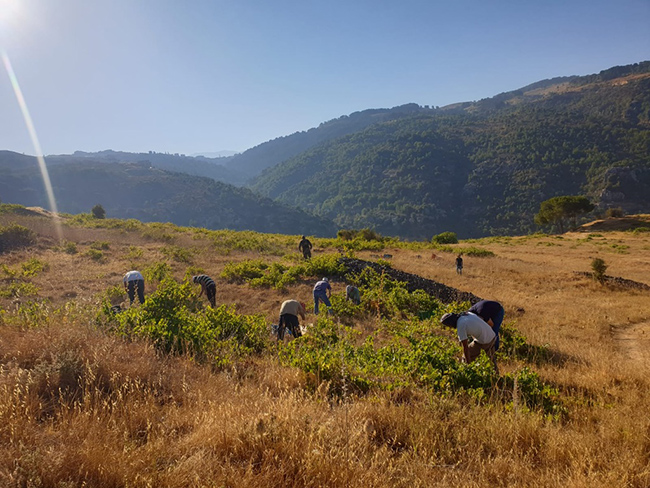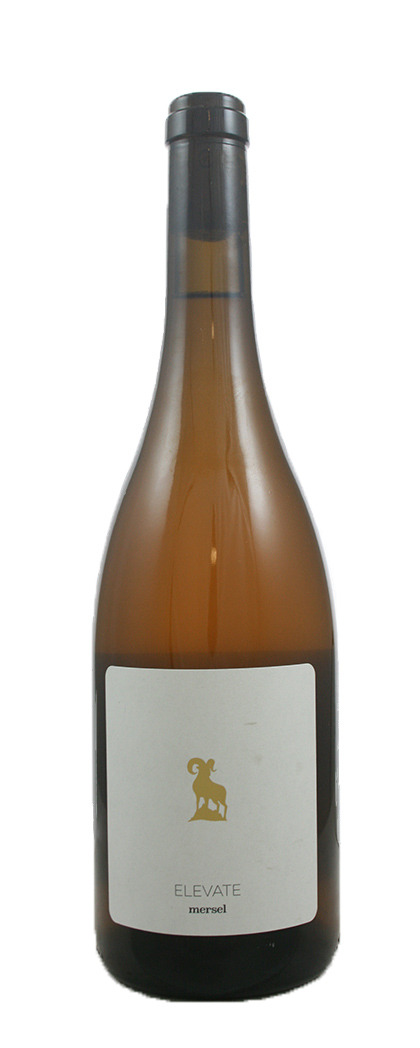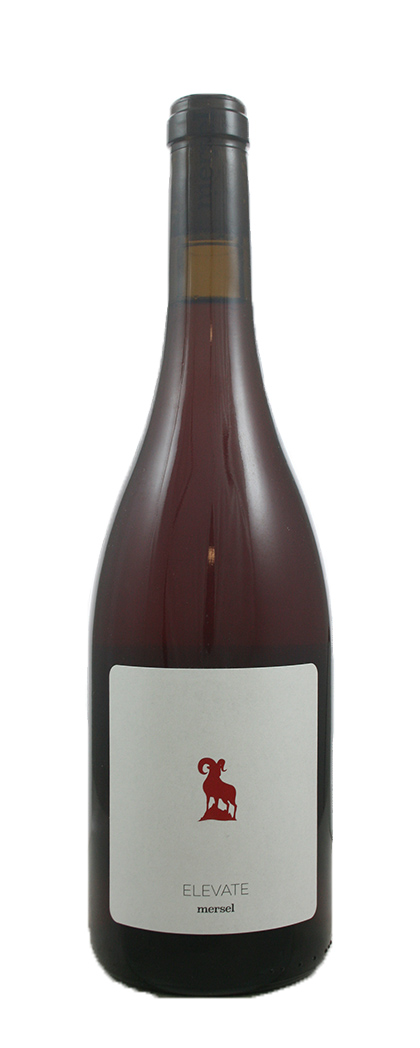“ELEVATE!”
One of the seminal moments in Dr Who history occurred in the imaginatively-titled 2005 episode Dalek when (spoiler alert!) the metallic pepper pot with the loo-plunger extension faced its greatest enemy: stairs. It had long been a joke that the evilest race in the universe was rather too easily defeated by flights of stairs thanks to their impractical dustbin-on-wheels design. Of course, as we all remember, it didn’t prove to be much of a problem after all: with a cry of “ELEVATE!”, the Dalek raised itself from the ground and slowly ascended.
Nowadays, Daleks spend more time floating around in the air, than with their wheels on the ground. Vignerons are turning their gazes to loftier climes. In these days of extreme weather and overall climate change, seeking out the cool is the coolest thing you can do.
Many of Lebanon’s vineyards are planted on the slopes of Mount Lebanon, a mountain range, extending almost the entire length of the country, parallel to the Mediterranean coast for about 150 miles (240 km), with northern outliers extending into Syria. The northern section, north of the saddle, or pass, of Dahr al-Baydar (through which the Beirut–Damascus railroad and highway run), is the widest and loftiest part of the mountains, which average 7,000 ft (2,100 m) above sea level with a few snowcapped peaks, including Qurnat as-Sawda at 10,131 ft. On the western flanks, east of Bsharr?, are the remaining groves of the renowned Cedars of Lebanon.
Lebanon is among the oldest regions for wine production in the world. Today, Eddie & Michelle Shami continue this legacy with the same passion that the Phoenicians had centuries ago, exporting quality wines from the “land of the cedars.” At Mersel, they wanted to embed their culture into the wines. As Eddie remarks: “Lebanese people are warm and hospitable, they open their hearts and homes and welcome those around them. We wanted to create wines that fit with the Lebanese character, wines that are for everyone to enjoy, and wines that help our local farmers.”
If the Mersel wines represent the friendly fruit-driven side of natural winemaking, then the Elevate range represents terroir and tradition.
The name ‘Mersel Wine’ derives from the region Maksar Mersel, the highest viticultural region in Lebanon, located between the Cedars and Ainata El Arz at an altitude ranging between 2,000m and 2,400m above sea level. They also have vineyards in Ainata in the Bekaa Valley, Dimane and Bcharre in Wadi Qannoubine, and Bousit in Northern Lebanon.
If the Mersel wines represent the friendly fruit-driven side of natural winemaking, then the Elevate range represents terroir and tradition. The white wine is called Daw al Amar (meaning moonlight), which is also the name of the grape variety. Google search all you want to, this will only come up as a song, not in ampelography digests! Daw al Amar is one of the oldest high-altitude grapes on the Beka’a Valley side of Ainata al Arz and is characterised by its tight bunches and round berries with firm skins and pleasant aromas. It’s a very old grape, gets a lot of sun, and ripens late.
Harvested by hand from head-trained vines on limestone soils at 1,700 metres above sea level, the Daw la Amar grapes are destemmed and undergo two weeks of skin-maceration, fermenting in a mixture of neutral barrel and Georgian qvevri, before ageing for a further period in barrels. The wine is bottled without filtration or fining and only a tiny dose of sulphur. Golden-amber in colour, its nose has subtle nutty aromatics with notes of russet apple and ripe citrus. The flavours are almost medicinal and there is a nice little lemony kick from the acidity to remind one of the wine’s elevated origins.
The Elevate red is from the Marini grape (no, you haven’t heard of that one either) and originates from Blouza in Wadi Annoubine. Here we are on sandy volcanic soils at no less than 1,800 m above sea level! The vines are 150-years-old, own-rooted, and co-planted with Merwah. Destemmed grapes are macerated for two weeks and fermented with indigenous yeasts in Georgian qvevri, before ageing in Lebanese amphora. The wine is very shiny, mid rose-hued, and positively bristles with cherry-stone fruit, fine acids and salty minerals. Very delicious and unusual, it reminds us of some of the pale high-altitude country wines from Etna in Sicily or Lechkhumi in Georgia.
2021 Elevate Daw al Amar
2021 Elevate Marini
*
Interested in finding out more about the wines of Mersel? Contact us directly:
shop@lescaves.co.uk | sales@lescaves.co.uk | 01483 538820




